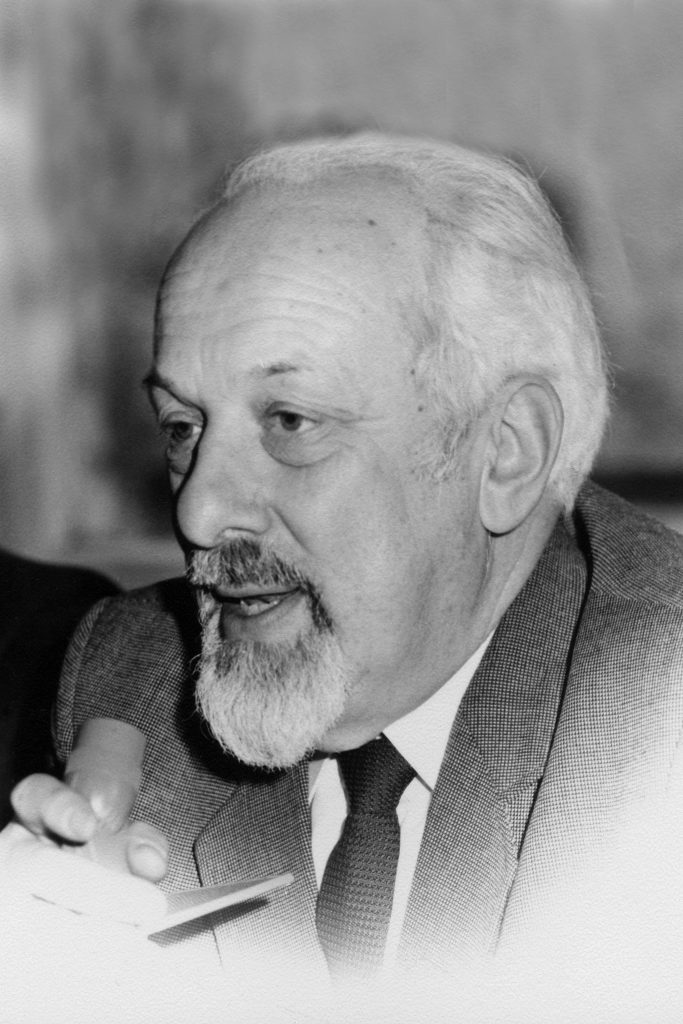under construction
Vladimir Sergeevich Bagotsky (1920-2012), spent the early part of his life in Switzerland, entered Moscow University in 1938, and graduated in 1944. His PhD thesis on hydrogen evolution on mercury (1947) was supervised by Z.A. Iofa. In late 1940s, he started his oxygen reduction research, co-authored “Kinetics of electrode processes”, and participated in sharp discussions on atomic hydrogen, e.g. found himself in the center of the professional life at the Dept, but it was possible only until the “fight with anti-cosmopolitants” started. This campaign forced him to leave the University in 1949, and move to the All-Union Research Institute “Cells-Electrocarbon” (later known as the Institute of Power Sources, VNIIT). His successful development of silver-zinc batteries for the soviet space program made Bagotsky the real leader of power sources research in the country. In 1960s, he became the head of the state fuel cell program. Finally, it became possible to establish his division in Frumkin Institute in 1965, and many of his pupils and colleagues from VNIIT joined him in this new unit, see their names and main topics below. This memorial article contains Bagotsky’s complete list of articles and books, as well as many photos. His principle team members from both Frumkin Inst and VNIIT are presented at this page (alphabetic order).

Some early Bagotsky’s publications (under construction)